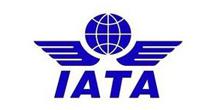UN 38.3 Accreditation brief
United Nations Recommendations on the Transport of Dangerous Goods, Manual of Tests and Criteria, Chapter 38.3-UN 38.3 Certification.
To ensure the safety of air transport and to meet customers 'demand for the transportation of goods containing lithium batteries, and in accordance with the relevant provisions of the IATA Dangerous Goods Rules, to develop the operational specifications for rechargeable lithium batteries, namely UN 38.3(UNDOT) test.
As required by civil aviation regulations, transport documents for lithium batteries should be reviewed by airlines and airport cargo receiving and shipping departments, the most important of which is the safety test report of UN 38.3 for each type of lithium battery. The report can be provided by a third-party testing agency designated by civil aviation(such as Huaco Testing) or by a battery manufacturer with detection capabilities. If this test report can not be provided, civil aviation will prohibit the transport of lithium batteries by air.
UN 38.3 means part 3, paragraph 38.3, of the United Nations Manual of Tests and Criteria for the Transport of Dangerous Goods, developed by the United Nations specifically for the transport of dangerous goods, i.e., prior to requiring the transport of lithium batteries, It is necessary to pass high simulation, high and low temperature cycle, vibration test, impact test, external short circuit at 55 °C, impact test, overcharge test, and forced discharge test to ensure the safety of lithium battery transportation. If the lithium battery is not installed with the equipment, it must also pass the 1.2 M free drop test.
UN 38.3 Authentication marking

UN 38.3 Scope of certified products
1. Lithium secondary batteries of various types of power(such as batteries for power vehicles, batteries for electric road vehicles, batteries for power tools, batteries for hybrid vehicles, etc..)
2. Various cell phone batteries(e.g. lithium-ion batteries, lithium-polymer batteries, etc..)
3. Various small secondary batteries(such as laptop batteries, digital camera batteries, camera batteries, various cylindrical batteries, wireless communication batteries, portable DVD batteries, CD and MP3 player batteries, etc..)
4. Various primary batteries(e.g. lithium-manganese batteries)
UN 38.3 Test items
T. 1 Highly simulated test
T. 2 Thermal testing
T. 3 Vibration test
T. 4 Impact test
T. 5 External short circuit test
T. 6 Collision tests
T. 7 Overcharge test
T. 8 Compulsory discharge test
Criteria for passing tests
A. T. 1-4 No mass loss, no leakage, no exhaust, no disintegration, no rupture, no fire, open circuit voltage not less than 90 % before test
B. T. 5 -- T. 6 surface temperature does not exceed 170 °C, no disintegration, no rupture, no fire within 6 hours of test
C. T. 7 -- T. 8 No disintegration and no fire within 7 days of testing
Restrictions on packing requirements and conditions
Transferred lithium cells and lithium batteries may be transported as non-restricted articles(non-dangerous goods) if all the following conditions are met. UN 3090 or UN 3091 shall operate in accordance with the dangerous goods shipment requirements of UN 3090 or UN 3091 if any of the following conditions can not be met:
(I) Restrictions on lithium content
For metallic lithium or lithium alloy primary batteries, the lithium content should not exceed 1G; For lithium-ion primary batteries, the Edingwate hour does not exceed 20 Wh.
Note: Protobatteries are also called battery cores.
2, for metallic lithium or lithium alloy batteries, the total lithium content does not exceed 2G, and for lithium ion batteries, the Edingwate hour does not exceed 100Wh.
Note: The "lithium content" above refers to the amount of lithium metal on the anode of a lithium metal or lithium alloy battery.
For metallic lithium or lithium alloy primary batteries or batteries, the "lithium equivalent content" in grams is calculated by 0.3 times the rated capacity of amperage hours. For example, if the rated capacity of a mobile phone lithium-ion battery is 800mAh(800 mA hour), its "lithium-equivalent content" is: 0.3 X 0.8(ampeh hour) = 0.24 grams.
(II) Compliance with UN test requirements
Each type of primary battery and battery has been tested and demonstrated to meet all the requirements of part 3, paragraph 38.3, of the United Nations Manual of Tests and Criteria on the Transport of Dangerous Goods.
(3) Packaging requirements
Batteries and primary batteries must be individually packaged to prevent short circuits and installed in strong outer packaging unless installed in equipment such as mobile phones, cameras, walkie-talkies, laptops, etc..
Unless installed in equipment, each package containing more than 24 primary batteries or 12 batteries must also meet the following requirements:
1) Each package shall be marked to indicate the battery containing lithium and the special measures to be taken in case of damage to the packaging.
2) Each shipment must have a random document stating the lithium battery in the package and the special measures to be taken when the package is broken.
3) Each packaging shall be capable of withstand a drop test of 1.2 m of any orientation without damage to the batteries or metabatteries in the packaging, It did not change the position of the battery so that the battery and the battery(or primary battery and primary battery) contacted each other, and no battery leaked out of the packaging.
4) If the battery is transported separately, the gross weight of each package shall not exceed 10kg.